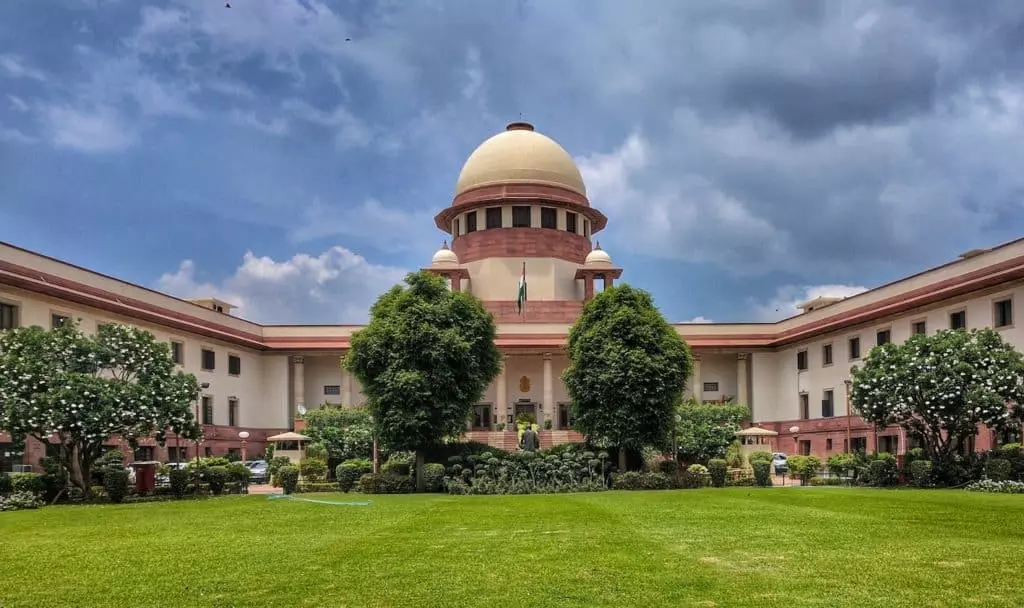
Reservation for Economically Weaker Sections doesn't violate basic structure: SC
text_fieldsThe Supreme Court on Monday ruled that reservation on an economic basis does not violate the Constitution of India. The five-judge bench, for seven days from September 13, heard the petitions challenging the constitutional validity of the 103rd amendment to the Constitution which introduced a 10% reservation of Economically Weaker Sections (EWS) in educational institutions and government jobs.
Of the five-judge bench, three Justices Dinesh Maheshwari, Bela M Trivedi and JB Pardiwala upheld the act while the outgoing Chief Justice of India UU Lalit, and S Ravindra Bhat disagreed with the majority verdict. Justice Ravindra Bhat said that economic criteria can be a basis for reservation, but excluding SC/ST and SEBC classes from the said reservation is against the basic principle of the constitution.
The bench in effect said the EWS reservation does not violate the equality code or the essential feature of the constitution for taking into account economic criteria. The judgement further said that the breach of 50% does not violate basic structure as the ceiling limit is here only for 16(4) and (5), read Justice Dinesh Maheshwari. He added that the ceiling is itself flexible.
The top court added that the reservation instrument of affirmative action by the state is to ensure the goal of an egalitarian society. The judgement further said the EWS quote is for the inclusion of any class or section disadvantaged, reported The Indian Express. Justice Bela M Trivedi also backed the law providing reservations for people other than SC, ST, and OBC and whose annual family income was below Rs 8 lakh.
However, Justice S Ravindra Bhat dissented and called it "discriminatory and violative of basic structure." He said India's constitution does not allow exclusion. "Economic destitution, economic backwardness is the backbone of this amendment and on this account, the amendment is constitutionally indefeasible. However, excluding the classes such as Scheduled Caste/Scheduled Tribes, Other Backward Classes (OBC) is not constitutionally permissible."
The reservation of the poorer sections of India's upper castes was introduced right before the 2019 general elections soon after the BJP lost Madhya Pradesh, Rajasthan, and Chhattisgarh elections. It was immediately challenged in the Supreme Court. Most opposition parties including Congress did not oppose the law. The Supreme Court was hearing around 40 petitions against the law, which would enable members of the EWS category enjoy reservation in government jobs and educaitonal institutions. One of them was filed by the state of Tamil Nadu.
Through the amendment, states were empowered to reserve 10 per cent of government jobs and seats for education for EWS category. Accordingly, states like Maharashtra and Kerala have by now introduced the said quota in state service and educational institutions.

























